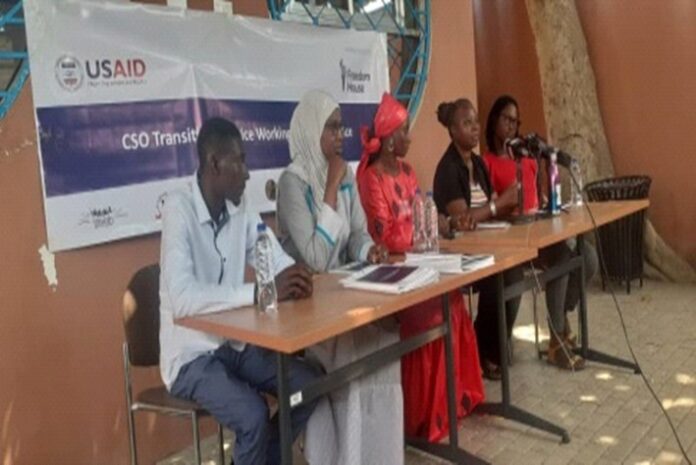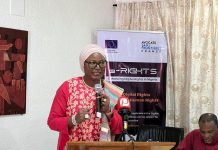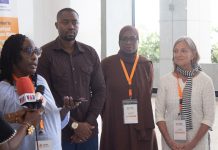By Nelson Manneh
A coalition of Civil Society Organization’s (CSOs) in the Gambia, have submitted a White Paper they prepared on the Truth Reconciliation and Reparation Commission’s (TRRC) report and recommendations, to the Gambian Government on Thursday 5th May 2022, through the Ministry of Justice.
The white paper is developed by the CSOs thematic working group on transitional justice, supported by a consultant. The document brought together voices of civil society organizations, victim led organizations, victims and transitional justice actors at a press briefing with reporters.
“This press briefing is meant to update the public on the findings and position of civil society on the TRRC report and recommendation, and to push for its inclusion in Government’s White paper that is due to be published in May 2022,” Serreh Ndow, country director of African Network Against Extrajudicial Killings and Enforced Disappearances (ANEKED), said.
She said Transitional justice (TI) looks to the future and the past, to record wrong doings of the past; recommend possible remedies, and set the stage for a more peaceful and human rights-respecting society in the future.
“Truth-seeking is only one piece of the jigsaw that must be pieced together, to rebuild a peaceful and just society. The Gambia’s Truth, Reconciliation and Reparation Commission (TRRC) did a good job at bringing to life, horrific human rights abuses that took place during Jammeh’s 22 years at the helm of Government, as detailed in the final TRRC report submitted to President Barrow on November 25th 2021,” she said; that the next step in the TJ process is the full and fair implementation of the TRRC recommendations. She said the three arms of Government, CSOs ad the media, as well as international partners, all have a role to play in rebuilding Gambian society and helping victims of human rights abuses to find closure and rebuild their lives.
Both the TRRC report and this shadow White Paper have highlighted pertinent gaps in the truth-seeking process, which takes nothing away from the stellar effort of the TRRC, and yet they need to be addressed. For example, the truth about enforced disappearances and sexual and gender-based violence has not been adequately established by the TRRC. Without establishing the truth in these cases, victims of SGBV and those affected by the loss of family members cannot have closure, justice and reparation.



















